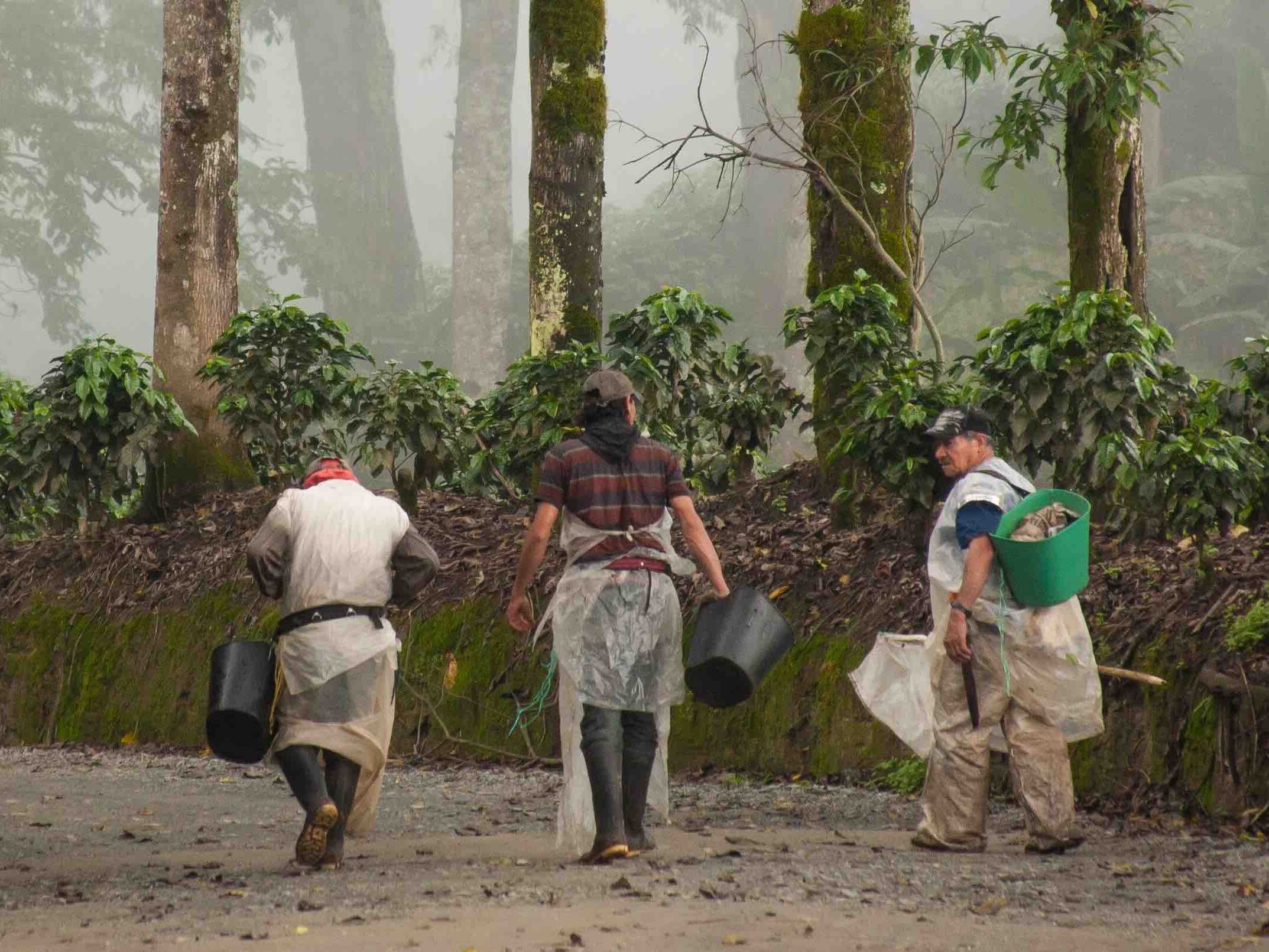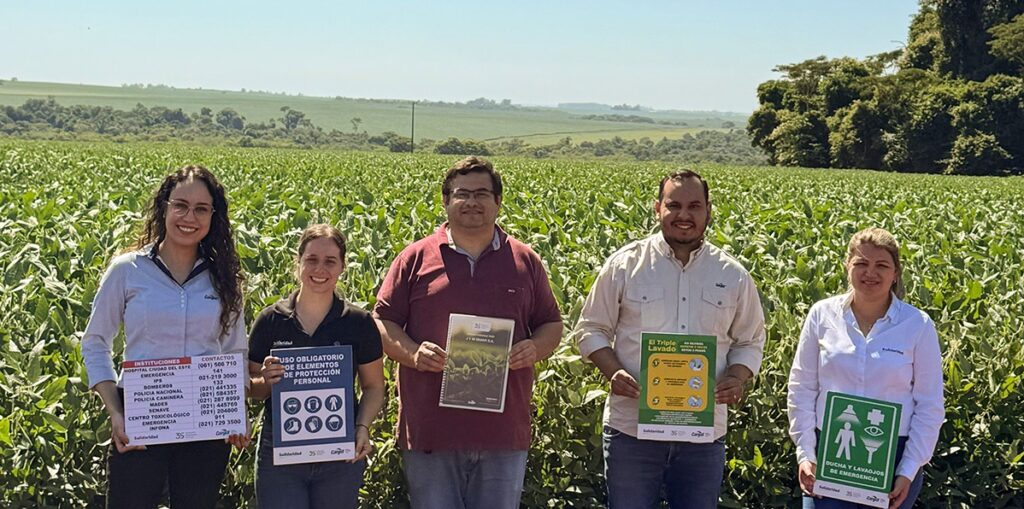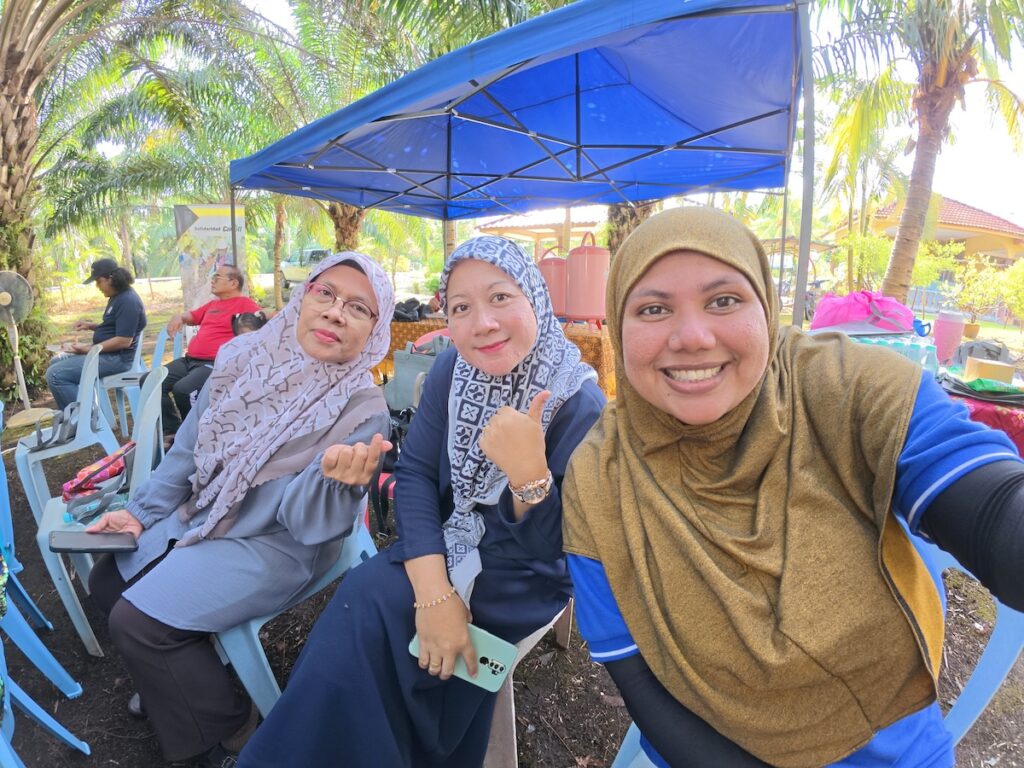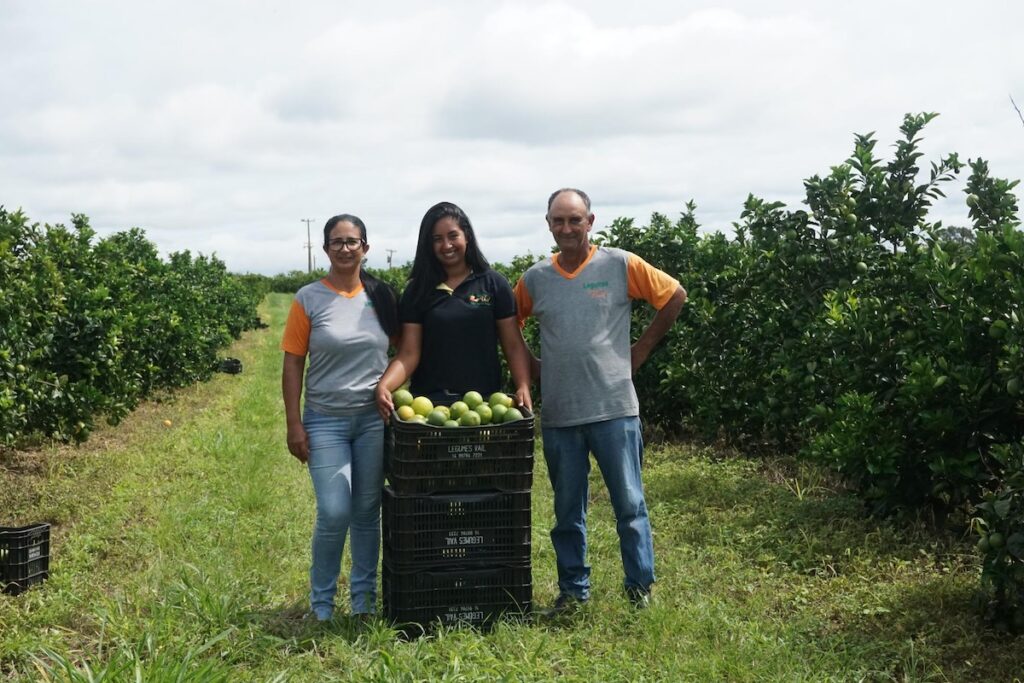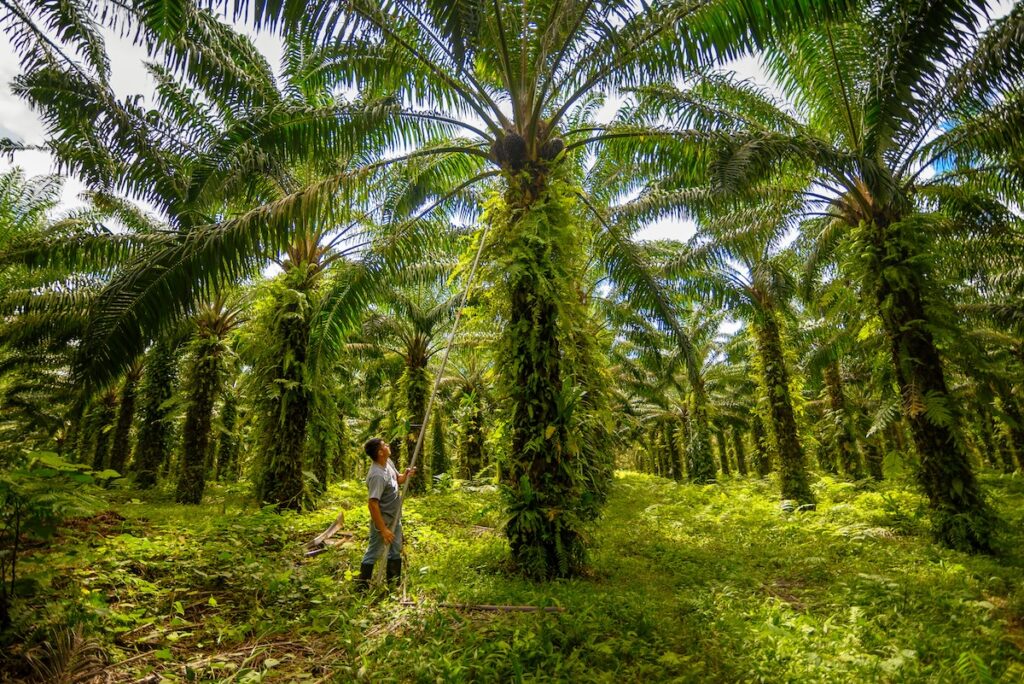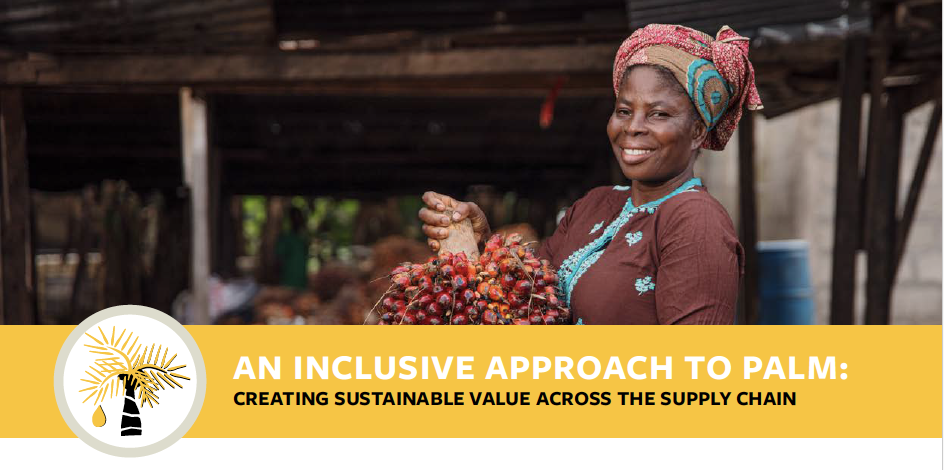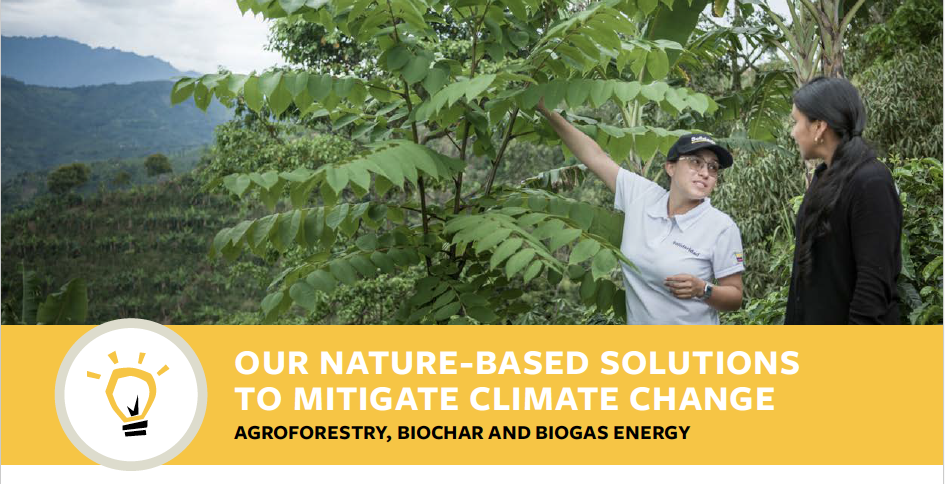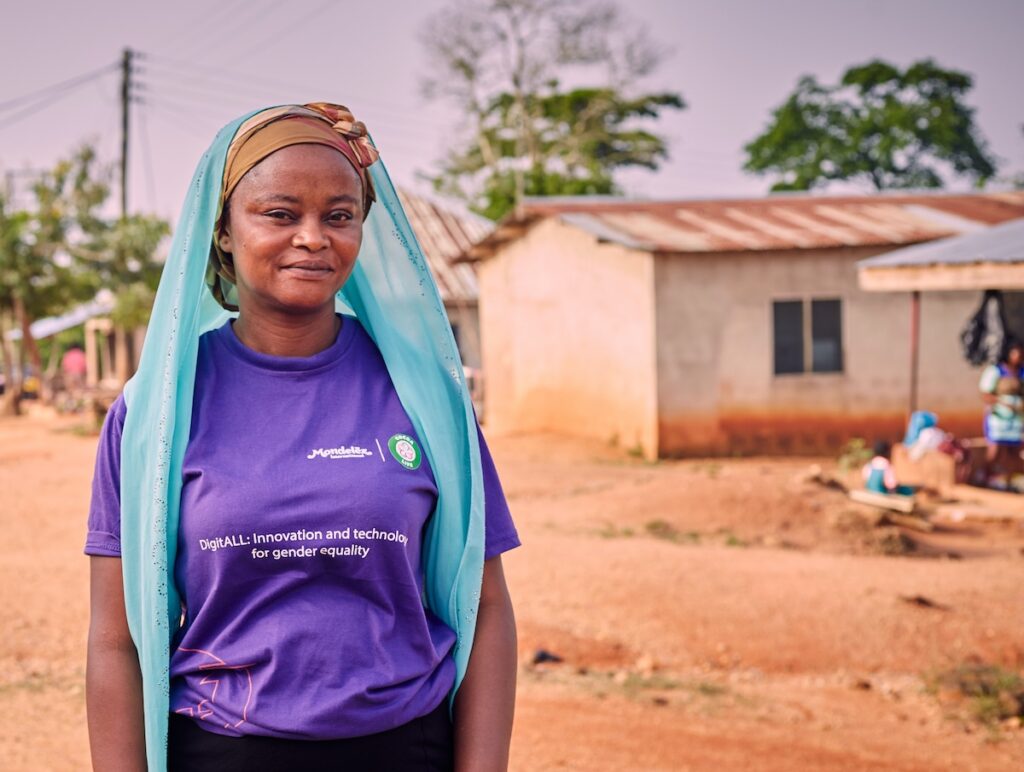Meet Doña Rosa, Coffee Farmer
Doña Rosa starts her day with some arepas, a traditional maize-based staple food from Colombia, and coffee, the centre of her and her community’s story. She is within the indigenous land Escopetera y Pirza in the area. Doña Rosa learned how to grow coffee from her parents, it’s a natural thing for her. She comes from Quinchía, a lovely village in the Colombian mountains. Her farm overlooks the majestic Cerro Batero, a mountain that reminds us how small we are.
Two years ago, her coffee fields started to show the impact of climate change. The summer sun was so strong that the soil had become dry, and her harvest turned very small. This event flagged the importance of doing something to adapt to changing times. Around that time, Doña Rosa learnt that Solidaridad was starting a new initiative to support coffee farmers in this process: “Coffee of the Future,” with the support of the Norwegian Government (NICFI).
Meet Héctor, Solidaridad Field Officer
Here enters Héctor, a field officer from Solidaridad who is also a coffee grower. Hector was hiking the steep hills of Quinchía promoting new ways of growing coffee through a set of five good practices: installing and managing shading, improving the management of coffee by-products, optimizing fertilization, soil care and increasing coffee tree density. At first, telling people who knew by heart how to grow coffee that they must now do things differently was intimidating. Yet, producers had noticed that what they used to do was not sufficient any more, and listened.
The strategy of the project, led by Héctor in Quinchía, was to set up work groups building on the spirit of community that is prevalent in the region. That’s when the paths of Doña Rosa and Héctor crossed.
The Life Growers
Doña Rosa and some of her neighbors established the group “Sembradores de vida” (Life growers). “I think the name is very clear. Growing life, that is what we are doing” says Doña Rosa. There were 6 women and 7 men between 40 and 104 years old (yes, 104!) in the group. Her daughter, who is an indigenous leader, also joined the programme. Doña Rosa admits it was not easy to work collectively as a group. They had to respect and understand how others acted and made decisions, and adapt to the different time availability between men and women. Nevertheless, neither gender nor age was a limitation, as they all were motivated. They even learned a lot from the elders, who remembered how in their time they didn’t need to fertilize, and yet harvests were abundant.
Every week they all went to one of the group members’ farm, learned a lesson and applied it together. Then, they would go home and replicate the experience in their own plots. The following week, they would rotate the pilot farm. This was an innovative strategy to bypass the traditional lecture style of teaching, in which an expert talks and producers listen. Héctor and his colleagues also got rid of written materials like guidelines, as they rarely worked. Instead, they built groups and facilitated encounters around sharing food, work and knowledge.
Even as the Covid-19 pandemic emerged, Héctor and the coffee team didn’t stop. Héctor came up with the idea of having WhatsApp webinars, where the producers would apply in their plots what Héctor said and send back voice notes, videos and pictures of their progress. This low-cost strategy allowed them to stay connected remotely. Also, they created a radio programme called “Amidst coffee trees”. Doña Rosa remembers harvesting her coffee while listening to the programme amidst her own trees.
Growing impact
After three years, the Coffee of the Future reached 15,311 farmers, of whom 12,580 adopted at least three out of the five recommended practices. Even among those who didn’t reach the threshold of three practices, at least one practice was adopted, and 75% of them adopted two practices. Increased resilience provided by the climate-smart farm practices improved the quality and consistency of farmers’ coffee. Producers saw their income increase by 70% on average against the baseline, thanks to the price increase , but also to a more efficient management of expenses.
Among Héctor’s teachings, the “Life growers” learned that trees were crucial for coffee production. As Doña Rosa puts it: “With the trees, the coffee plant will be protected and immediately the soil too. It won’t receive the impact of solar radiation or rain.” In fact, smallholder farmers can play a substantial role in the fight against climate change by sequestering carbon emissions on the land they farm with the trees they plant. The “Life growers”, for example, built a nursery of trees for reforestation and shade, which they planted in their farms, and even managed to sell some surpluses in the region.
As a result of the work of the different groups, the participating farms in Colombia went from 510 kg of CO2/ha sequestered up to 2,483 kg of CO2/ha sequestered within three years of implementation.
An opportunity is born
While it was not an explicit objective of the project to link producers with carbon markets, Solidaridad’s contact with companies and financial institutions interested in off-setting their carbon footprint, created an opportunity. Farmers do not usually receive compensation for the environmental services they provide. More specifically, smallholder producers have not yet benefited from the carbon market, as their farms are too small and transaction costs are too high.
In order to provide financial incentives for farmers adopting climate-smart practices and switching their farms to agroforestry systems, Solidaridad started a pilot together with Rabobank to facilitate the matching between them and companies. In this partnership, Solidaridad supports farmers with the registration to the Rabobank’s platform, collects the data to calculate carbon stocks within their farms, and provides technical support so that the farmers can continue to implement climate-smart practices. Rabobank provides the ACORN platform, which gives farmers access to a preferential carbon market that compensates 1 tonne of CO2eq with an approximate rate of 20 euros (5-10 euros higher than the voluntary market).
The ACORN programme also ensures that farmers will be compensated each year for the reduction of greenhouse gas emissions, provided they keep their forests for at least 20 years. Rabobank also takes care of the verification of the tree-based credits through satellite monitoring. More advanced technology in recent years has allowed the ACORN platform to perform verification processes at reduced costs, creating a breakthrough for farmers to enter the international carbon market.
So far, the initiative has collected data from over 2,000 farmers to enter the platform (39% of farmers engaged in “Coffee of the Future”), who are expected to receive their first payment in 2022. Additional farmers will be able to enter the platform at a later date, if they comply with the eligibility criteria, including having set their agroforestry systems within the last five years.
Payment for services, and new possibilities
Using Solidaridad’s carbon sequestration measurements, producers could receive annually between 720,000 and 798,000 COP (which represents between 79-87% of a monthly minimum wage in Colombia). This extra income can improve community livelihoods, and trigger broader behavioural change regarding farming practices and forest conservation, as these schemes help producers ground abstract concepts, such as carbon. Payments for Environmental Services can indeed improve producers’ interest in planting shade trees.
Doña Rosa says the idea is to go further and protect coffee production and the environment. “I feel really proud because I know that me, my family and my community are walking towards a better future”. She knows what she has in her hands is at the centre of life
Land is sacred, is blessed, is the only thing that produces …. and we need to take care of it.
Doña Rosa, Coffee Farmer

